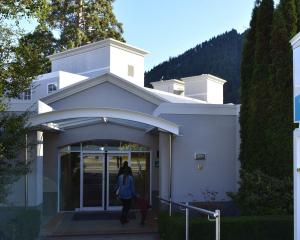Queenstown residents concerned over central business district noise issues could have their say on the draft plan change, likely in a couple of months.
Public submissions on Plan Change 42 - Queenstown Town Centre Noise Management - opened in December last year as the Queenstown Lakes District Council decided to investigate whether Queenstown's CBD noise regulations needed changing.
Council senior policy analyst Ralph Henderson last week said the council was undertaking private acoustic consultation to see how changes in rules and regulations could translate into the new document.
"We have got some acoustic consultants looking at how to deal with specific noise issues and the specific matters recognised through the consulting process," Mr Henderson said.
When the findings of the report are finalised, they will go back to the noise management working party for consideration along with public submissions on the issue.
A draft plan change document will then be written and put out for public consultation.
Mr Henderson said a timeframe had not yet been set for the process, but he thought it would probably take " a couple of months".
Council's initial consultation included a public discussion document and questionnaire released in January, which had drawn 81 public submissions by its February 4 closing date.
More than three-quarters of respondents said the level of noise allowed in the town centre should be increased, and 70% responded that it was appropriate for the CBD to become noisier to help it become more vibrant.
Hospitality, with 59%, was considered the "most important" use to cater for in the CBD, with residential uses receiving 17% support, and other uses 24%.
Almost all submitters agreed that the town centre should continue to be home to a "diverse mix" of uses, but responses over the issue of whether to limit the location of noise-sensitive activities were mixed, with some confusion over defining the term "noise sensitive".
Just over half of the respondents (54%) answered "yes", and Mr Henderson said some respondents might have interpreted "noise-sensitive activities" as "noise-generating activities".












